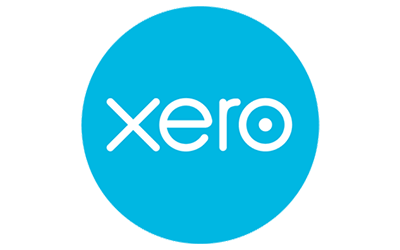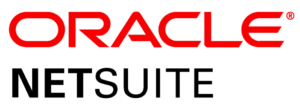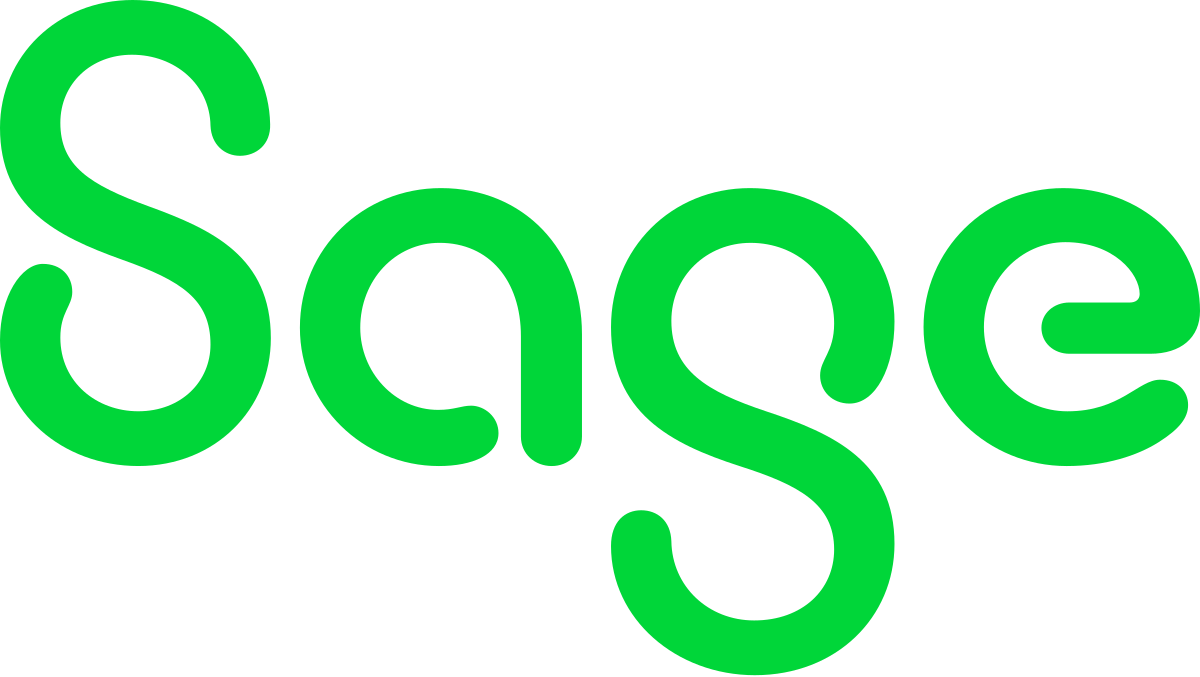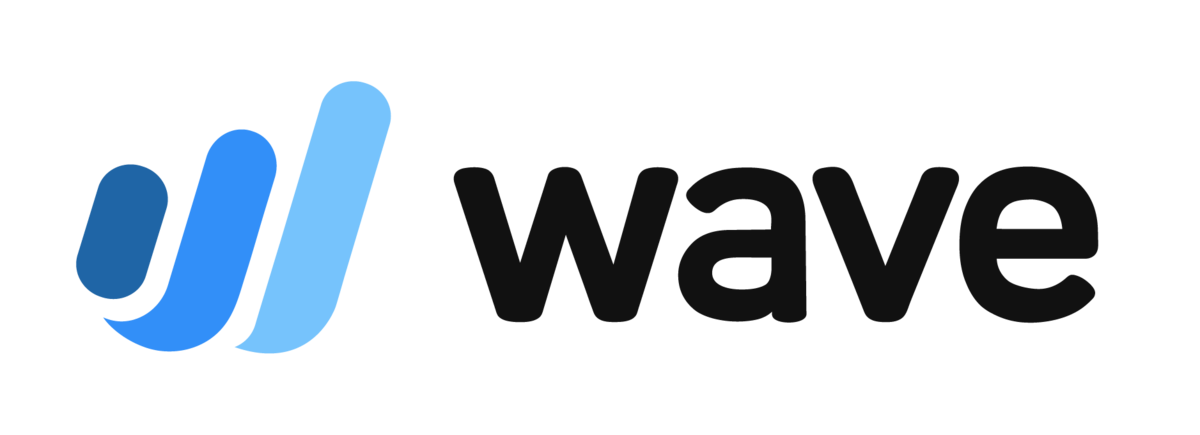Small Business Accounting Software Reviews
To help you choose the best accounting service for your business, we started with a list of 56 accounting software vendors. After a deep dive into features, pricing, customer support, and brand reputation, we narrowed our list to the best six. You can be assured that these companies are legit, thoroughly vetted by our editorial team, and have the best features to benefit your small business. Check out our methodology section for the full scoop on how we made these picks.

Xero – Best AI-Powered Accounting Software
Xero supports small business accounting by offering unlimited users, discounts for multiple businesses using the program, and AI that automates processes like bill pay and receipt tracking. It provides over 1,000 integrations and has a team of onboarding specialists to help you get started. If you’re a micro-business, there is an extremely affordable plan for you as long as you only send 20 invoices or less and pay five or fewer bills a month.
- Makes use of AI to automate processes
- Over 1,000 integrations
- Team of onboarding specialists
- No phone support
- Extra fees for ACH payments
Get Started Visit Xero’s website to get started
Xero features
- Accounts receivable: collect multiple types of online payments, keep your funds protected, and add click-to-pay to your online invoices.
- Accounts payable: track, schedule, and make batch payments.
- Expense tracking: automated expense tracking—snap a picture of your receipt with your phone, and the details are automatically tracked and loaded.
- Inventory management: inventory software that tracks inventory, automates orders, and details demand forecasting.
- Financial reporting: customize and run reports and collaborate with an online advisor when needed.
How Xero pricing works
Xero has three plans: Early, Growing, and Established. The Early plan costs just $15 a month. This plan is limited to very small businesses, though, with only 20 monthly invoices and five bills paid monthly. The other two plans cost $42 and $78 monthly, giving you unlimited invoices and bills. There is a free 30-day trial. Payroll is an add-on that is made available through Gusto.
What markets does Xero serve?
Xero works for several types of businesses. First, the Early plan is at an affordable price point for small businesses as long as you keep invoices to 20 a month and bills to five monthly. We also like that Xero automates many tasks, making it great for businesses that need to save time and resources. Finally, we like Xero for users with more than one business or multiple users, as there is no limit to the number of users, unlike some competitors.
Read our full Xero review

Intuit QuickBooks Online – Best Accounting and Payroll Software for Small Business
A big name in accounting software, Intuit QuickBooks Online is a well-known, popular program that provides small businesses with core and advanced accounting features, plus a variety of add-on options such as payroll and time tracking. It also has reliable mobile access, is highly customizable, and is easy enough for small businesses to learn and use. Standout features include inventory management, expense tracking, and bill pay.
- Supports many add-ons like payroll
- Well-known and easy-to-find online resources
- Highly capable mobile app
- Steep learning curve
- Limited users in some plans
Get Started Visit QuickBooks Online’s website to get started
Intuit QuickBooks Online features
- Accounts receivable: send invoices and collect payments faster online.
- Accounts payable: organize and manage bills in one place so you never miss a payment.
- Expense tracking: track expenses from multiple accounts.
- Inventory management: track what’s in stock and what is ordered.
- Financial reporting: generate custom reports.
How Intuit QuickBooks Online pricing works
Intuit QuickBooks Online has four plans: Simple Start, Essentials, Plus, and Advanced. The first three months of each plan are 50 percent off, making the starting price of the Simple Start plan $15 a month and the starting price of the highest plan (Advanced) $100 a month to start. After three months, they jump to full price at $30 and $200 monthly, respectively. There is also a 30-day free trial to try before you buy. Payroll and time tracking are available add-ons.
What markets does Intuit QuickBooks Online serve?
Intuit QuickBooks Online has a wide variety of features, integrations, and a highly successful mobile app, making it appealing to a range of businesses. We like it best for SMBs, as the price can be steep, but it covers more complex features that midsize businesses with a tech budget will find useful.
Read our full Intuit QuickBooks Online review

FreshBooks – Best for SMBs and Accountants
FreshBooks is a straightforward accounting software for small businesses, freelancers, solopreneurs, and accountants. It offers features such as invoicing, billing, expense and mileage tracking, project management, and retainer management. Despite its simplicity, you can tailor it to your needs by adding advanced tools like payroll and bookkeeping services. The software is available in four affordable plans, making it accessible and easy to use no matter your accounting needs.
- User-friendly interface
- Excellent customer service
- Feature-rich with unique offerings for freelancers and service professionals
- Does not include inventory tracking
- Limited users
Get Started Visit FreshBooks’s website to get started
FreshBooks features
- Accounts receivable: send professional quality invoices and accept payments online.
- Accounts payable: perform accounts payable basics like bill pay, general ledger, and more.
- Expense tracking: use automatic receipt scanning to eliminate manual expense tracking.
- Financial reporting: access a straightforward dashboard and run detailed reports.
How FreshBooks pricing works
FreshBooks has four plans: Lite, Plus, Premium, and Select. The Lite plan starts at just $7.60 per month, while the Premium plan is $24 a month, and you must request a quote for the Select plan. Each plan allows for one user except the Select plan, which allows two users. Additional users are an extra cost. Plans start with just five billable clients and move up to 50 in the Plus plan and unlimited in the Premium and Select plans. There is a 30-day free trial, and you get 60 percent off for the first four months.
What markets does FreshBooks serve?
FreshBooks is designed for freelancers, solopreneurs, small businesses, and those who provide professional services. FreshBooks also offers special features and tools for accountants who offer services to small businesses. Its Accountant Hub makes it easy to manage clients and see everything in one place. Instead of inventory tracking like many competitors, it offers features like retainer client billing and mileage tracking to help smaller businesses and professional service providers.
Read our full Freshbooks review

Zoho Books – Best Cheap Accounting Software for Small Business
Zoho Books is part of a full suite of Zoho business products, including Zoho CRM. Zoho Books offers a feature-rich program that includes core accounting, compliance, document management, access to other Zoho business tools, collaboration, smart automation, and mobile access. It’s the perfect balance of features and affordability, with free accounting software for small businesses with an annual revenue of less than $50K.
- Robust free plan
- Rich feature set
- Easy UI
- Might be too complex for your needs
- Plans are limited to 15 or fewer users
Get Started Visit Zoho Books’s website to get started
Zoho Books features
- Accounts receivable: send customizable invoices and statements and receive payments in multiple currencies.
- Accounts payable: generate and track vendor bills, set them up as recurring payments, and send them off for approval.
- Expense tracking: upload receipts and easily track where your money is spent.
- Inventory management: capture complete product details and monitor how fast they’re moving.
- Financial reporting: view financials in charts, dashboards, and reports.
How Zoho Books pricing works
Zoho Books has six plans: Free, Standard, Professional, Premium, Elite, and Ultimate. Pricing ranges from $15 per month to $240 per month. A Free plan is available for organizations with less than $50K in annual revenue. A 14-day free trial is also available to sample before you commit. Each plan limits the number of users you can have, and once you go beyond that, you start paying per user monthly. The Ultimate plan, the highest one, lets you have 15 users, which is the most.
What markets does Zoho Books serve?
Zoho Books is a good option for small businesses that have complex needs. As a feature-rich platform, it might be too complex for super small businesses, but the sweet spot is small businesses that need to keep up with larger companies or that are preparing to scale. It also works well for businesses already using other Zoho products.
Read our full Zoho Books review

Oracle NetSuite – Best for Scalable Accounting
Oracle NetSuite provides a cloud-based accounting solution to support growing businesses with real-time financial management. It combines accounting features with comprehensive resource planning, enabling businesses to manage core processes like accounts receivable and payable, financial planning, revenue recognition, and compliance.
- Strong resource planning and financial management features
- Customizable dashboards and reporting
- Cloud-based with real-time data access
- Pricing varies with customization needs
- Complex setup for smaller companies
Free Product Tour Visit Oracle NetSuite’s website
Oracle NetSuite features
- Accounts receivable and payable
- Financial planning and analysis
- Revenue recognition
What markets does Oracle Netsuite serve?
Oracle NetSuite is ideal for small to mid-sized businesses needing an extensive financial management solution that integrates seamlessly with other business functions.
Read our full Oracle NetSuite review

Sage 50 Accounting – Best Desktop Accounting Software for Small Business
Sage 50 Accounting combines powerful desktop accounting software with cloud capabilities to give you a complete view of your finances and inventory. While Sage 50 is priced slightly higher than strictly cloud-based services, the desktop platform stands out for advanced inventory tracking and job costing tools. But because it has online access, you aren’t tied to your desk. You can see real-time business insights on the go while collaborating with your teams, giving you the best of both worlds.
- Powerful inventory and job costing features
- Microsoft 365 integration
- Industry-specific features
- No mobile app
- High price point
Sage 50 Accounting
- Accounts receivable: cash flow manager that gives you custom views of your quotes and invoices.
- Accounts payable: automate bill payments, purchase orders, and bank reconciliations.
- Expense tracking: utilize live bank feeds to automatically track expenses.
- Inventory management: track inventory daily in custom units and monitor quantities, transactions, item classes, and purchase order status.
- Financial reporting: over 150 reports, including specialized reports per industry.
How Sage 50 Accounting pricing works
Sage 50 has three plans: Pro Accounting, Premium Accounting, and Quantum Accounting. You can also pair a plan with a payroll bundle. Pricing starts at $58.92 a month, which is considerably higher than cloud-based plans, but the cost reflects that it’s a desktop program with much more advanced features. Each plan comes with an allotted number of users and 24/7 support. In the Quantum level plan, starting at $172 per month, you get industry-specific features. There is a 30-day trial available before you commit.
What markets does Sage 50 Accounting serve?
Sage 50 Accounting is an excellent tool for businesses that need to keep close tabs on inventory and job costs. It tracks inventory in custom units daily, allowing you to view your purchase orders and inventory status. It also gives you insight into each job and project, estimating job costs, tracking inventory for each job, and estimating your revenue. Furthermore, you can use Sage 50 Accounting by specific industry with industry-specific functions, inventory management, and reporting.

Wave – Best Free Accounting Software
Wave offers a suite of money management tools, including invoicing, online payment acceptance, and accounting basics. While pretty lean in features, it has one of the best free accounting software for small business plans that we reviewed. Small businesses needing a simple accounting solution will benefit from the free plan, which allows you to send unlimited invoices and perform basic accounting.
- Basic free plan with accounting and invoicing
- Unlimited users and transactions
- Excellent transaction management tools
- Limited features
- Lacking human support
Wave
- Accounts receivable: Create and send professional invoices that sync with Wave’s accounting to easily keep track of your outstanding invoices.
- Accounts payable: Track money going out versus money coming in with basic accounting features.
- Expense tracking: Scan and track spending straight from your mobile device.
- Financial reporting: Monitor the health of your business through a variety of reports, including profit and loss statements.
How Wave pricing works
Wave offers just two plans: Starter and Pro. The Starter plan is free and includes unlimited invoices, a mobile app for tracking invoices, and basic accounting. If you want anything beyond that, it will be an added fee. The Pro plan starts at $16 a month and includes expense tracking and the ability to make and accept online payments. Payroll, bookkeeping, and the ability to scan receipts digitally are add-ons.
What markets does Wave serve?
Wave is ideal for very small businesses that don’t need all the bells and whistles. If you just need a way to generate invoices and track basic income versus expenses, Wave is a simple and free solution. Those with more complex needs can consider the Pro plan.
Compare the best accounting software for small businesses side-by-side
| Software Name | Why we picked it | Starting price for the cheapest plan | Highlights |
|---|---|---|---|
| Xero | Best AI-Powered Accounting Software | $15 / month | Many automated features like receipt tracking and integrations |
| Intuit QuickBooks Online | Best Accounting and Payroll Software for Small Business | $30 / month | Well-known and easy to get support |
| FreshBooks | Best for SMBs and Accountants | $19 / month | Unique features like retainer tools and mileage tracking for solopreneurs |
| Zoho Books | Best Cheap Accounting Software for Small Business | Free | Free version available, plus it’s good for those already using Zoho tools | Oracle NetSuite | Best for Comprehensive Financial Management | Available by quote | Strong resource planning and financial management |
| Sage 50 Accounting | Best Accounting and Inventory Software for Small Business | $58.92 / month | Desktop tool for advanced inventory and job cost management |
| Wave | Best Free Accounting Software | $16 / month | Free plan with unlimited invoicing and basic accounting |
What is accounting software?
Accounting software is a program that generally helps you organize your financial transactions, track income and expenses, reconcile accounts, generate reports, and track the money you owe, something all businesses need to do. Features of accounting systems typically include, but are not limited to, income and expenses, invoices, and bill payments. While larger businesses use complex software with more features, small businesses often use simplified programs that automate and eliminate the need to manually enter data, saving the business time and money while reducing errors.
What are the different types of accounting software?
There are several different types of accounting software. What you choose will align with your type of business, business size, and specific needs. The various types include:
- Commercial software: the most generally used and affordable accounting software.
- Enterprise Resource Planning (ERP) software: expensive and complex ERP software is designed for large enterprises and ties in accounting with other software like CRM.
- Industry-specific software: created to cater to a specific industry like manufacturing, retail, or construction, it has features unique to the industry it’s designed for.
Accounting software features
Different types of accounting software offer different features, and sorting out the must-have features can be complex. We’ve done the heavy lifting for you and have identified the following features to look for in accounting software:
- Income and expense tracking: allows you to organize, track, and create financial statements.
- Accounts receivable: lets you customize and create invoices, issue and automate recurring payment reminders, and accept payments directly from your invoice.
- Accounts payable: organizes your bills and payment due dates so you don’t miss payments and allows for automated recurring bill payments.
- Inventory management: helps you track inventory, manage vendors, and create purchase orders.
- Financial reporting: allows you to organize all aspects of accounting into an accurate financial statement.
Advantages of accounting software in small business
Accounting software has many advantages. One example being that 75% of accounting tasks can be automated through accounting software. “Accounting software has been essential every time our small business has hit a growth stage,” says Ashley Graber, Co-Owner at Cool Hand Movers. “It enables us to capture up-to-date information about business financials with the granularity necessary to inform strategic business decisions. It makes reporting easy when tax time comes, or we’re applying for grants or loans.”
According to a 2024 report from Gitnux, 63% of small businesses say accounting software improves their financial accuracy. In addition, it also:
- Reduces manual errors and minimizes compliance risks
- Saves you time and resources
- Provides you with real-time financial insights
“Accounting software has been essential every time our small business has hit a growth stage.”
How much does accounting software cost?
Accounting software costs a range of prices. Our research saw prices as low as $15 per month (Xero and Zoho) and as high as $58.92 per month (Sage 50 Accounting). The latter price reflects a complex desktop program focusing on industry-specific features and inventory management.
Most accounting software allows for a limited number of users, invoices, or billable clients. Several also offer an initial discount. For example, Intuit QuickBooks Online offers 50 percent off for the first three months, Xero currently offers 75 percent off for the first six months, and FreshBooks offers 60 percent off for the first four months. Take a look at the following table for a better understanding of our findings (sales prices are reflected in the table).
| Accounting Software Features | ||
|---|---|---|
| Xero | Sage 50 Accounting | FreshBooks |
| Starting at $15 / month | Starting at $58.92 per month | Starting at $19 per month |
| Up to 20 invoices | 1 user | 1 user, 5 billable clients |
Accounting Software for Small Business FAQ
What is accounting software used for?
Accounting software improves the efficiency and accuracy of accounting processes. It can store and track invoices, expenses, transactions, and sometimes payroll.
What is the most commonly used accounting software?
In our research, Intuit QuickBooks is the most well-known name in accounting software and is also the most used and well-known by accountants.
What is the best accounting software for self-employed?
For the self-employed, we found that FreshBooks offers the most comprehensive program, while Wave is also an affordable and solid basic program.
Is there any free accounting software?
Zoho Books offers free accounting software for businesses that make less than $50K annually, while Wave also offers a basic free plan with no restrictions.
How we chose the best accounting software for small businesses
We started with a well-rounded list of 56 accounting software companies on the market. We narrowed it down to 12 well-known brands with significant market share to test and compare each platform. From there, we choose six vendors that stand out for their features, the markets they serve, and their brand reputation.
Our research is collected and vetted from vendor websites, interviews, video and live demos, user reviews, and free trials. We focus on a scoring system for each company that weighs the following four parts as 25 percent of the total score.
- Features: In accounting software, we looked for vendors that offer accounts payable, accounts receivable, expense tracking, inventory management, and financial reporting features. Companies that offer all these features score higher as they provide a more streamlined and complete experience for small businesses and their accountants.
- Price: When we looked at pricing, we looked for price and fee transparency, free trials, or demos to try before you buy. We also compared pricing among vendors. Companies with transparent pricing and fees, as well as a free trial, got a higher score.
- Customer support: We studied availability and the types of support channels offered. Companies that offer more customer support hours and channels of support rank higher.
- Brand reputation: To gauge each vendor’s reputation, we gathered and studied data from customer reviews and ratings published on third-party review sites.